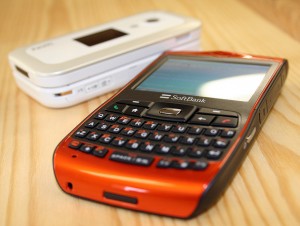If Project K-Nect is proof that at-risk kids benefit from access to smart phones (many of them, the founder Shawn Gross says, have gone on to take Advanced Placement math classes), what happens to those who don't have smart phones?
A reader asks:
My question for the group discussion is that because many of my socio-economically challenged students don't have the capability to engage in education via smart phone technology, how do I get them to ride the wave too? I am still challenged to get many of them to do any last century style pen and paper academics.
I asked K-Nect's Gross to elaborate, and here's his response:
"Statistically, teenagers rank as the fast growing segment for smart phones. As a result, we will see the disparity between the haves and have-nots begin to erode. Nevertheless, a digital divide at some level will always exist. In such cases whereby a student is not able to afford access to these types of devices, school systems need to help subsidize access.


